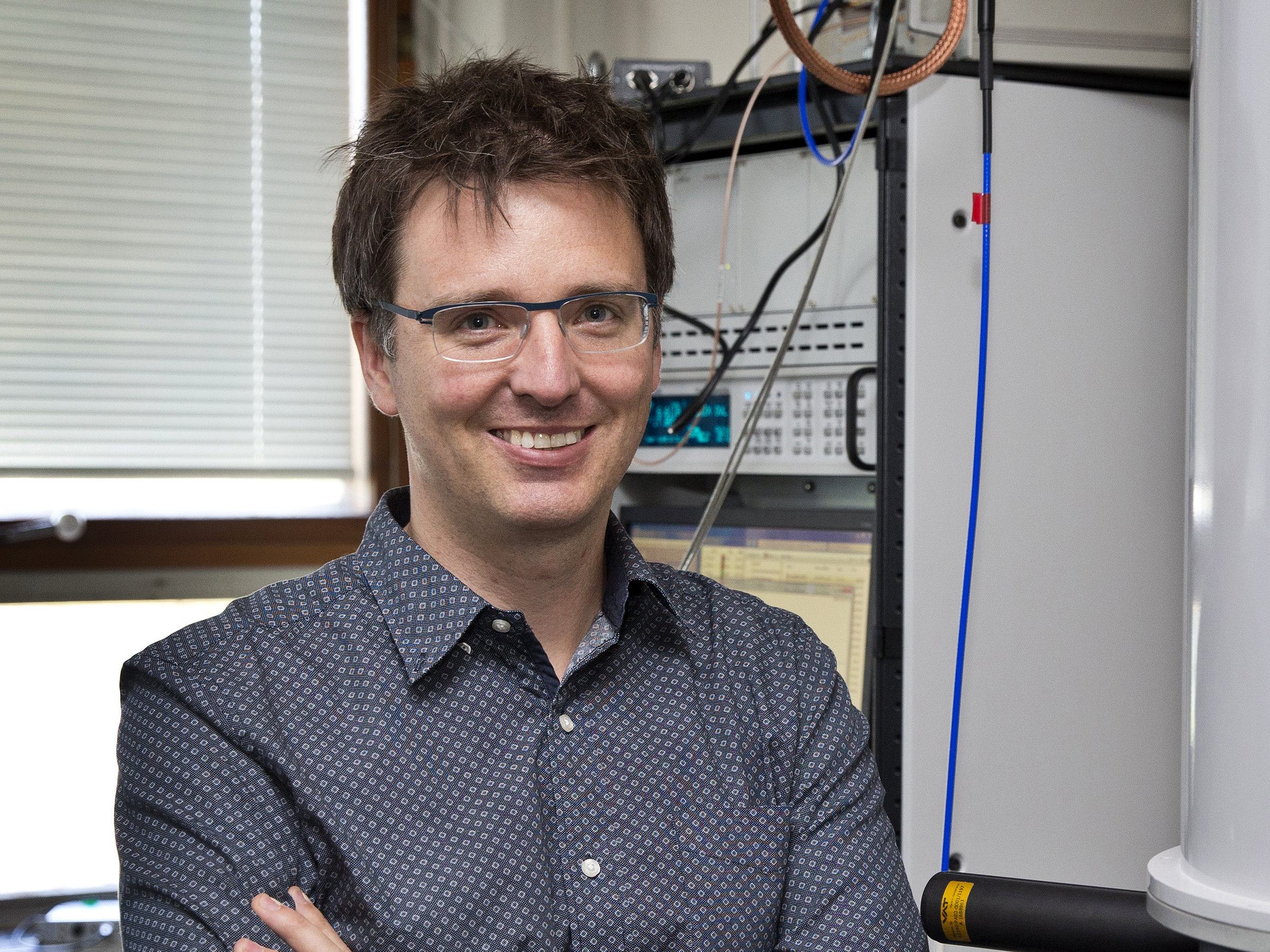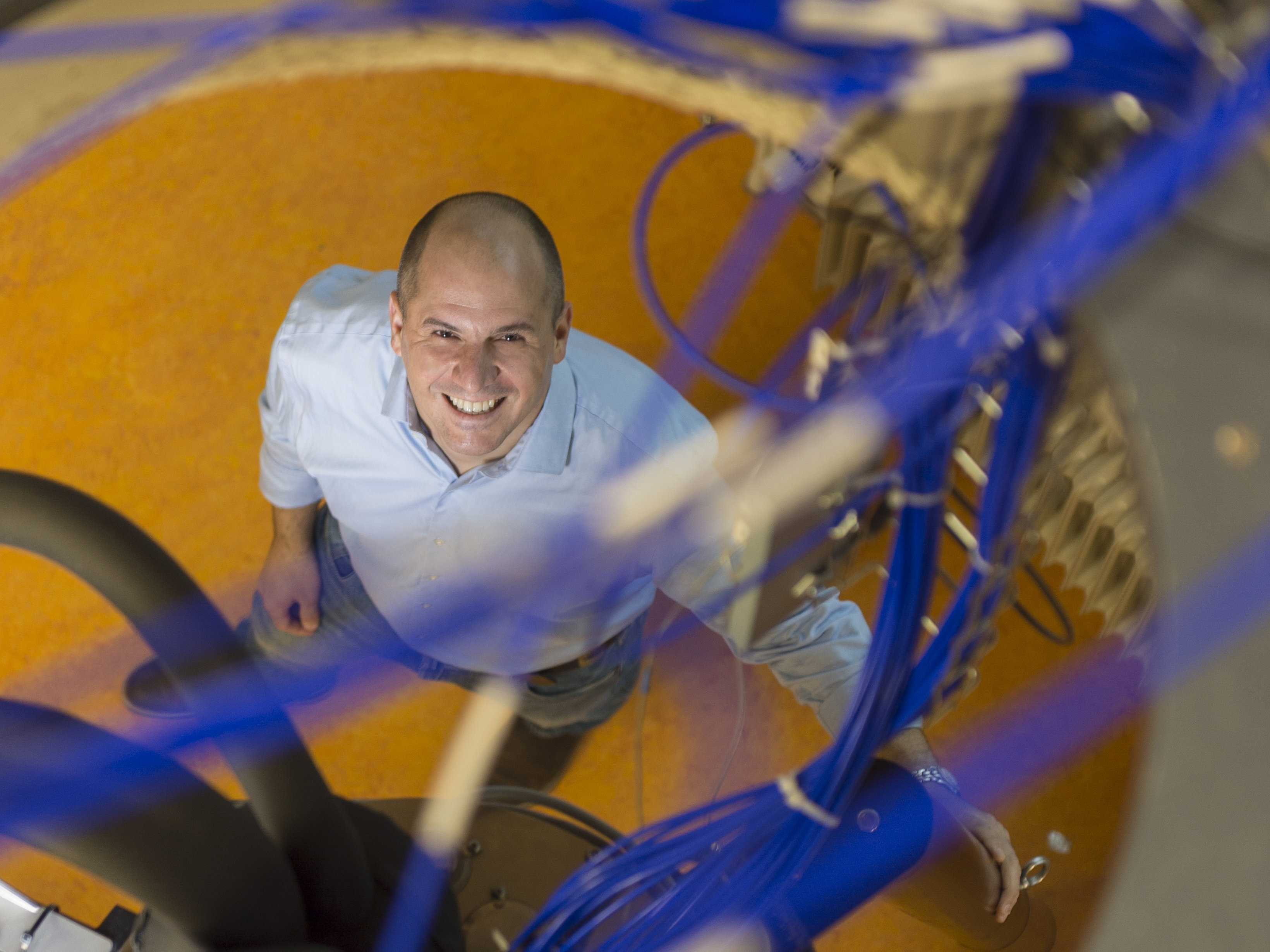Gary Steele and Leo DiCarlo appointed as AvL-professors
TU Delft has appointed Gary Steele (QN) and Leo DiCarlo (QuTech) of the Faculty of Applied Sciences as Antoni van Leeuwenhoek professors. The AvL chairs are intended for the promotion of young outstanding researchers so that they can optimally develop their academic careers.


Gary Steele
Gary Steele’s research focuses on quantum circuits and mechanics: building circuits that behave in a quantum way and using them to develop quantum applications of mechanical devices. He has also begun combining quantum circuits with new materials, and using circuits to simulate problems in quantum physics.
In 2017, Steele and his colleagues published an article about a promising new design for a superconducting 'transmon'-qubit. This stemmed from fundamental research into light-matter interaction, intended to explore the limits of quantum mechanics. Steele’s ambition in the coming years is to build a quantum superposition of a massive object: a ‘coffee cup’ in a quantum superposition of being two places at the same time.
“I am grateful for the recognition that the university has given me through this prestigious appointment, and look forward to developing my group any my research further in Delft in the coming years. I would also like to thank the QN department and Lucas for their support for me in this exciting process."
Leo DiCarlo
Leo DiCarlo's research focuses on superconducting circuits for quantum computation. It is his ambition to realize the first scalable prototype of a quantum computer, with integrated hardware, software and control electronics. This is only possible by combining traditional solid state physics with electrical engineering.
Scalability is a challenge in quantum computing. Millions of qubits are required to perform quantum algorithms, as well as to apply the necessary error correction. The control of large numbers of qubits has been very complex up to now, with control systems becoming larger as the number of qubits increased. In 2017 DiCarlo contributed to an important breakthrough in this area: a concept that allows an unlimited number of qubits to be controlled with one set of hardware.
DiCarlo: “How special it was to receive the phone call from our dean during QuTech's summer BBQ! I feel honored and grateful by this recognition from our university.”